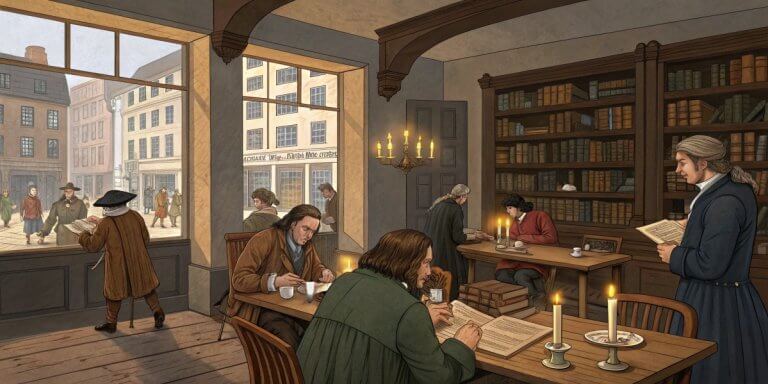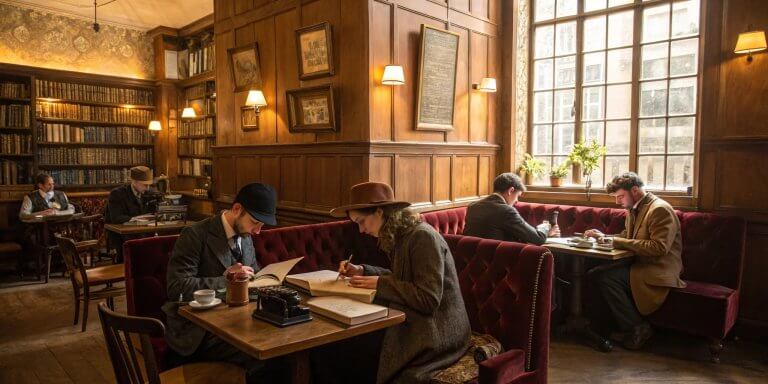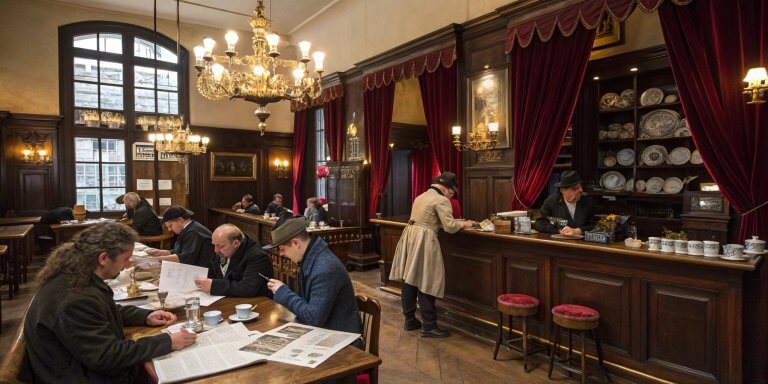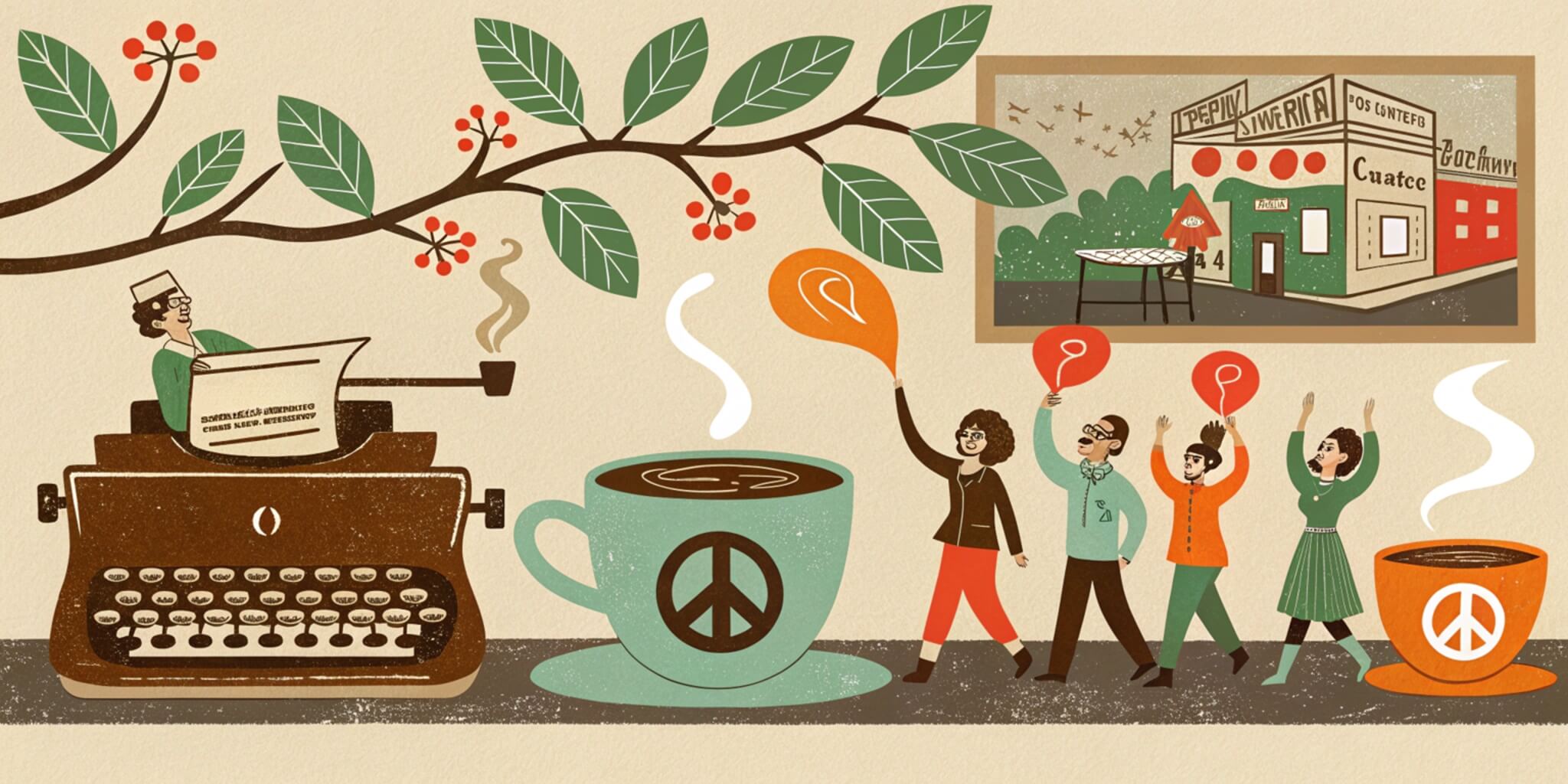
Coffee, a humble beverage, has always been more than just a drink. It has been a powerful force, empowering individuals and communities across centuries and continents. From Enlightenment debates to Civil Rights sit-ins, coffee has been a catalyst for change, fostering social movements, fueling revolutions, and creating spaces for countercultural thinking. Let’s explore how this inspiring role of coffee has been connected to critical social and countercultural movements throughout history.
Birthplaces of Revolutionary Ideas
In 17th- and 18th-century Europe, coffeehouses were not just places to get a caffeine fix; they were the birthplaces of revolutionary ideas. Known as ‘penny universities’ in England, these establishments were open to anyone who could afford a cup of coffee, fostering discussions on philosophy, politics, and science.
In places like Café Procope in Paris, intellectuals like Voltaire and Rousseau gathered to debate the ideas that would eventually fuel the Enlightenment and the French Revolution, enlightening the world with their revolutionary thinking.
Coffeehouses weren’t just academic spaces but also hotbeds of political action. The Green Dragon Tavern in Boston, often called “the headquarters of the American Revolution,” was where leaders like Samuel Adams and Paul Revere planned their resistance against British rule. The American Revolution, in part, was brewed in these spaces, where ideas about independence and liberty were passed around with cups of coffee.
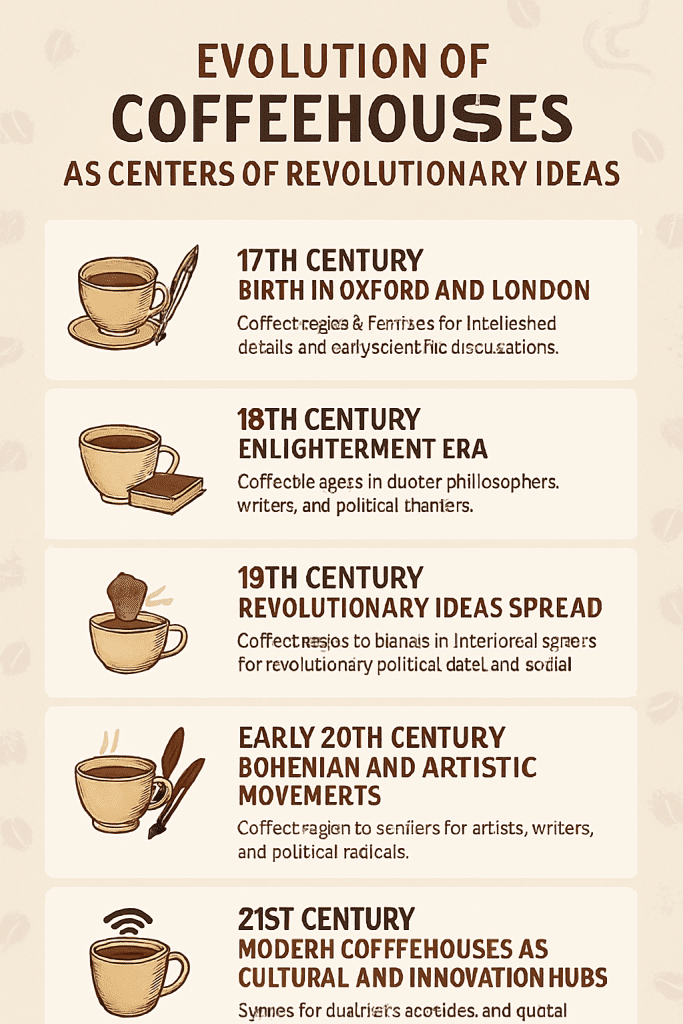
From Penny Universities to Arab Spring: A Century-Spanning Timeline
Coffeehouses as Centers for Artistic Expression
In the 1950s and 1960s, coffeehouses in cities like San Francisco and New York became the heartbeat of a new artistic and literary movement—the Beat Generation. Writers and poets like Allen Ginsberg and Jack Kerouac frequented places like Café Trieste in San Francisco, using coffeehouses to read their work and discuss their ideas. These coffeehouses were informal, creative environments where artists could share their work freely, often challenging societal norms.
Beyond the Beats, coffeehouses were also linked to political activism during this period. As a space where nonconformity thrived, they became places to discuss civil rights, pacifism, and anti-establishment values. The countercultural energy of the 1960s, including protests against the Vietnam War and support for the Civil Rights Movement, was nurtured in these cafés
Coffee and the Civil Rights Movement
During the 1960s, coffeehouses in the United States became vital gathering points for activists fighting for racial equality. Civil Rights leaders often met in these spaces and used coffeehouses as safe places to organize sit-ins and boycotts against segregationist policies. Unlike restaurants and diners that were segregated by race, coffeehouses often welcomed diverse groups of people, creating an environment where activists could freely strategize and mobilize for change.
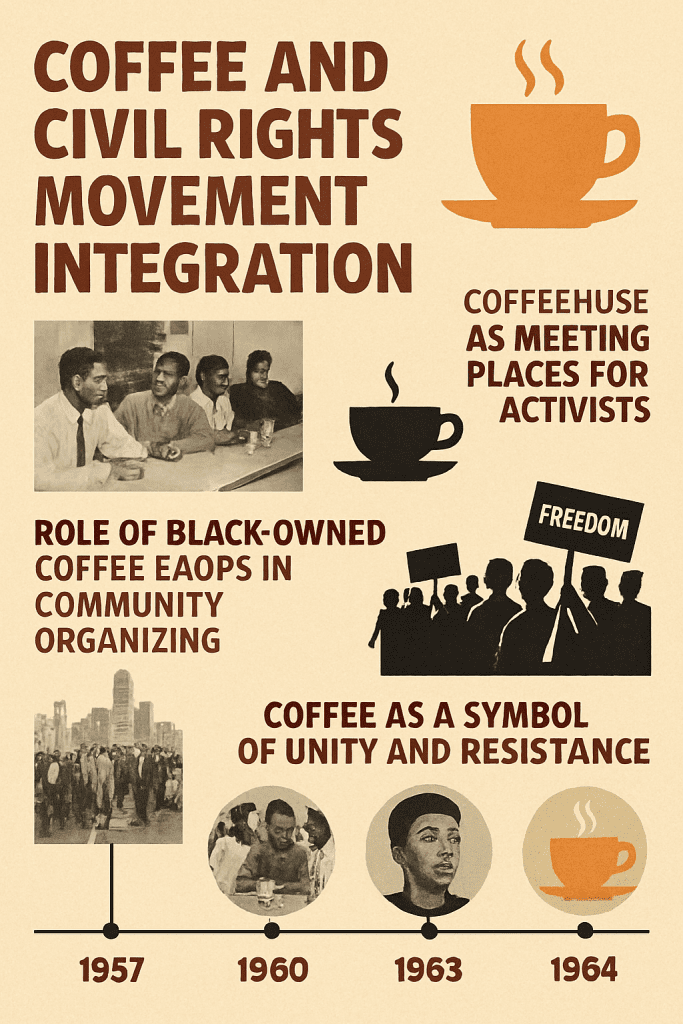
Brewing Equality: Shared Cups, Shared Struggles
One significant symbol of the Civil Rights Movement was sharing a cup of coffee across racial lines. At a time when segregationist laws kept Black and White Americans apart in public spaces, the integration of coffee shops became a powerful act of defiance against racial inequality. Coffee was not just a drink—it became a symbol of unity and resistance.
The Arab Spring: Coffeehouses as Spaces for Revolution
In recent history, coffeehouses played an essential role during the Arab Spring, a series of pro-democracy uprisings that spread across the Middle East in 2010 and 2011. In countries like Egypt and Tunisia, coffeehouses became gathering spots for activists organizing protests against authoritarian regimes.
These spaces offered a refuge from government surveillance, where people could meet to share ideas, discuss strategies, and coordinate efforts, demonstrating that the tradition of coffeehouses as centers for revolutionary ideas continues to this day.
The coffeehouse tradition in the Middle East dates back centuries, with these establishments serving as centers for political discourse as early as the 18th century. During the Arab Spring, they continued to fulfill that role, providing a vital forum for exchanging revolutionary ideas. For many young activists, coffeehouses were more than just meeting places—symbols of resistance against oppression.
Fair Trade Coffee and Social Justice
As coffee consumption grew worldwide, so did concerns about the conditions under which it was produced. By the late 20th century, many consumers and activists became aware of the exploitation faced by coffee farmers in developing countries.
In response, the Fair Trade movement was born. Fair Trade certification ensures that farmers are paid fair prices for their coffee, promoting sustainable practices and improving living conditions in coffee-growing communities.
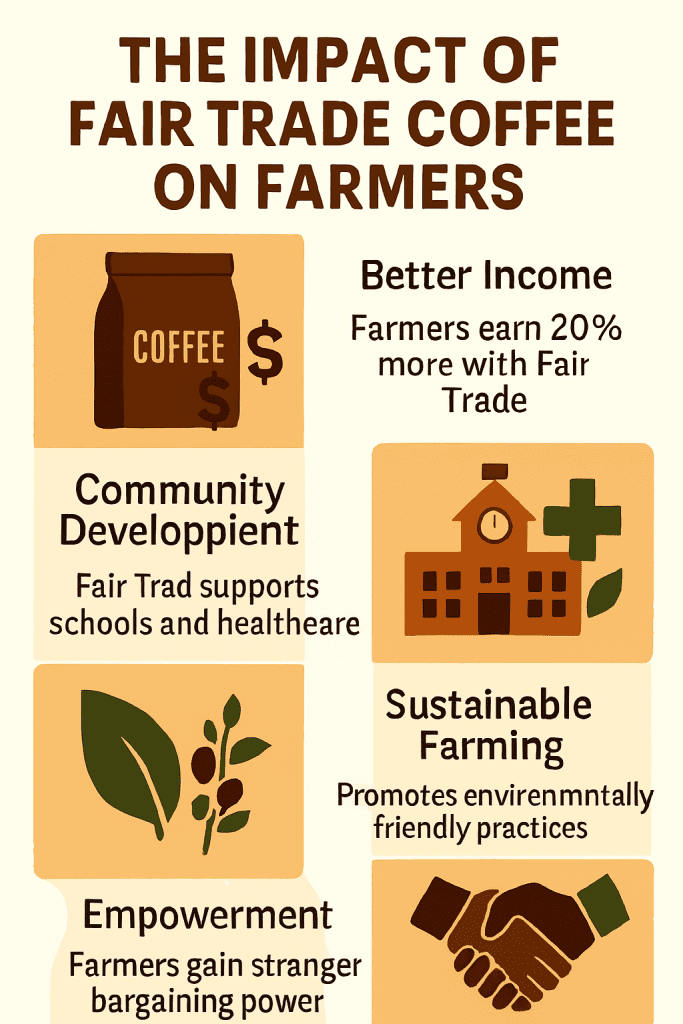
From Bean to Benefit: How Fair Trade Transforms Communities
Today, Fair Trade coffee is a way for consumers to support social justice with every cup they drink. The movement has helped raise awareness about the environmental and labor issues in the coffee industry, allowing coffee drinkers to make ethical choices that contribute to the welfare of farmers in places like Latin America, Africa, and Asia. This connection between coffee and activism reflects how even the most minor consumer decisions can be part of a more significant movement for change.
Coffee and Feminism:
Coffee has also been connected to feminist movements. During the early 20th century, women’s suffrage organizations in the United States and Europe used coffeehouses as venues for meetings and rallies. These spaces provided a platform for women to advocate for their right to vote and to discuss broader issues of gender equality, demonstrating that coffee has not only fueled social change but also served as a platform for advocating for gender equality.
Today, many modern coffee brands actively support feminist causes. For example, companies like Blk & Bold and Bean Voyage prioritize gender equality in their supply chains, supporting women farmers and providing them with the resources they need to succeed. Through these efforts, coffee continues to serve as a tool for social empowerment and gender equity.
Conclusion
From Enlightenment salons to modern-day activist coffeehouses, coffee has always been more than just a drink—a symbol of connection, revolution, and social change. Whether fostering intellectual debates, fueling artistic expression, or supporting labor rights, coffee has played an integral role in many of history’s most critical social movements.
As we enjoy our morning cup, it’s worth reflecting on the centuries of activism, art, and revolution that coffee has inspired. Each cup carries a rich legacy of change, reminding us that even the simplest things can profoundly impact society.



